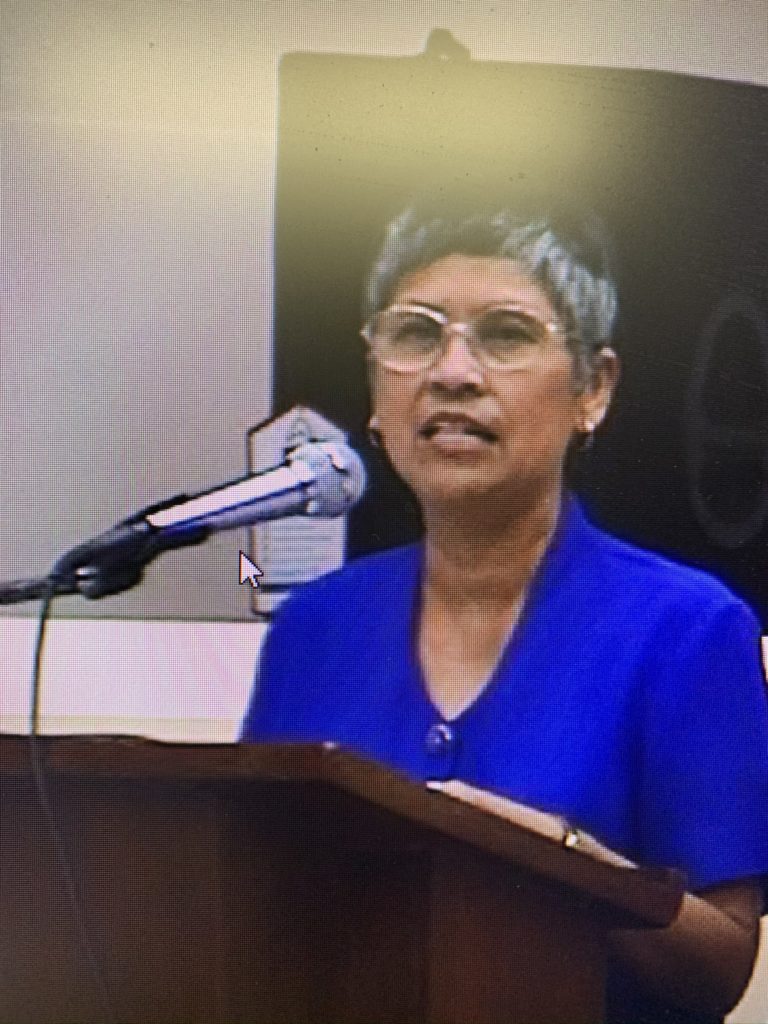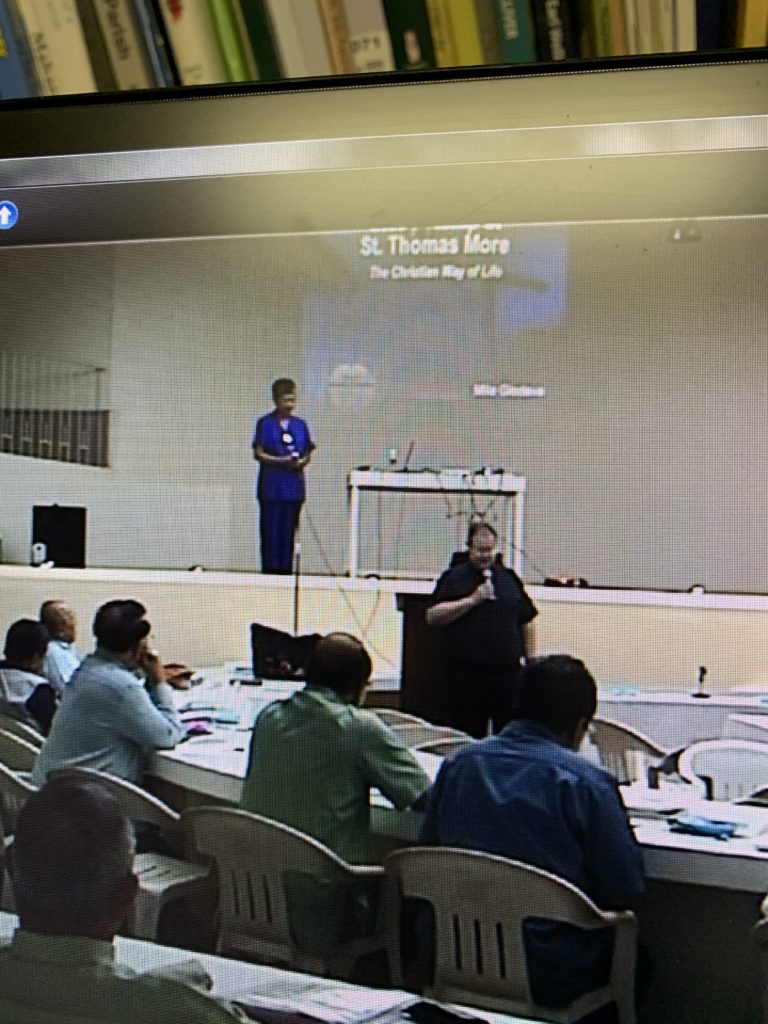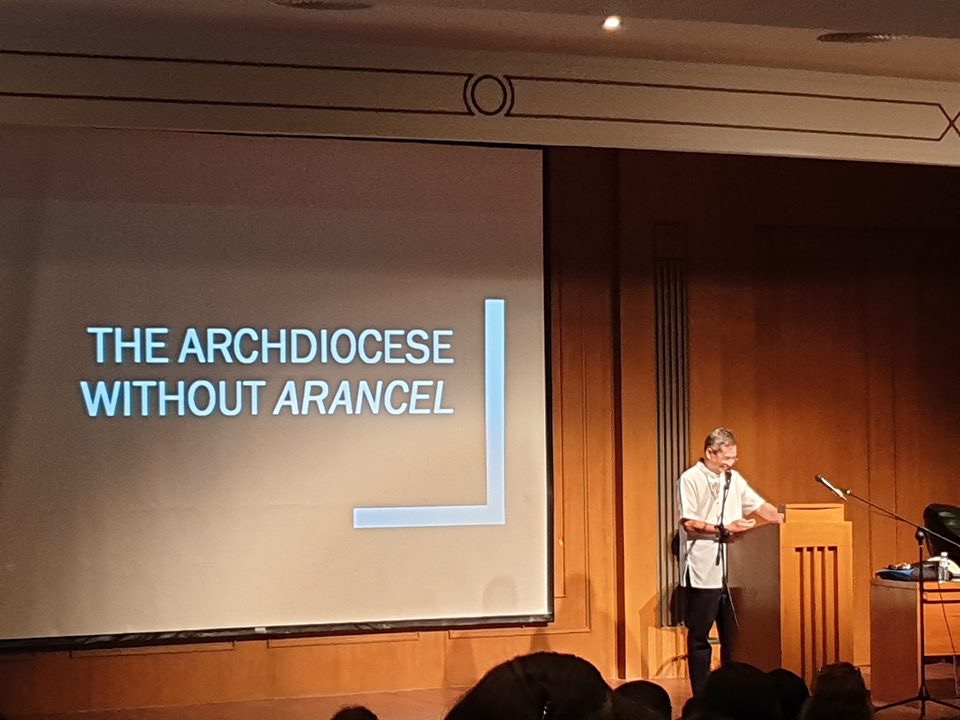By Mila Glodava
Fr. Joefran Talaban, parish priest of the Prelature of Infanta’s St. Anthony of Padua Parish in Casiguran, Aurora, posted on Facebook recently that his parish would start the abolition of the arancel or the stipend for the sacraments beginning in January 2021. This is definitely a significant development in the Church in the Philippines and in our mission to promote stewardship as a way of life.
Fr. Joefran’s post reminded me of the first time Fr. Andrew Kemberling, then Pastor of St. Thomas More (STM) Parish in Centennial, CO, and I spoke at the Plenary Assembly of the Catholic Bishops Conference of the Philippines (CBCP) in January 2005 (We were invited several times after that). Bishop Julio X. Labayen, OCD (RIP), Prelate Ordinary of the Prelature of Infanta, and Cardinal Ricardo Vidal (RIP), Archbishop of the Archdiocese of Cebu, arranged this event for us, as a result of our first stewardship seminar in Cebu in 2003. They both thought more bishops should hear about this Christian lifestyle and its potential for the Church in the Philippines.
I was naturally nervous about making a presentation to the Philippine bishops. For one thing, who am I, an immigrant from Infanta, Quezon, to teach this group of learned men anything. Moreover, it was obvious, early on, that most of the bishops were skeptical of the stewardship program from the United States that we were presenting. But listened, they did! A few actually admitted in their end-of-day reflections that they thought it was just another get-rich-quick scheme. One saving grace, however, was a video presentation on General Nakar’s Sts. Anne and Joachim Parish, one of the poorest of the poor parishes in the Prelature of Infanta. Some bishops admitted being moved to tears when they saw how the poor embraced stewardship as a way of life, especially after catastrophic mudslides devastated their parish and other surrounding parishes. It became especially interesting for them when they realized its possibilities with the Basic Ecclesial Communities, the “new way of being Church,” the Church of the poor.


As they say, the rest is history! A number of bishops embraced stewardship as a way of life for them personally and for their dioceses. Among them was Archbishop Socrates Villegas of Archdiocese of Lingayen-Dagupan and who was then CBCP president. The archdiocese calls stewardship “pananabangan.” He also took a leap of faith and declared in 2015 that his Archdiocese would abolish the arancel.

The abolition of the arancel, which has been practiced in the Philippines for 500 years, is an unexpected fruit of stewardship. There have been talks about its abolition before, but no success. Even the 1991 Second Plenary Council of the Philippines (PCP II) made the elimination of the arancel one of its goals. It said in Article 118: “Tithing, after a good pastoral catechesis, shall be introduced with the end in view of the gradual abolition of the Arancel System.” (Acts and Decrees of the Second Plenary Council of the Philippines). This goal, however, met a road block, due to the uncertainty of what would replace the revenues it provides.
Enter stewardship! Although it may not be the only reason to declare the abolition of the arancel by the 5th Centenary of Christianity in the Philippines, it definitely has helped! And while stewardship is not all about money, it is an important phase of stewardship. Even the usual time, talent and treasure or three T’s model, involves money. The STM model, however, has enhanced thebThree T’s to include: 1) making time for God in prayer or worship; 2) sharing one’s gifts and talents; 3) nourishing one’s faith; 4) giving of one’s treasure; 5) promoting vocations to the priesthood or religious life; and 6) preserving the earth. It provides, therefore, a solid “pastoral catechesis” that Article 118 requires.
On the loss of revenues, Archbishop Villegas said: “The Church will not get poorer with ‘Pananabangan.’” In fact, he said “The church will become more credible, more prophetic and more Christ-like with ‘Pananabangan.’” For St. Anthony of Padua Parish too, the abolition of the arancel is a testimony to their witness of faith and childlike trust in God and His providence.
Thus, the abolition of the arancel is a welcome change as the Philippines celebrates 500 years of Christianity this year 2021, with the theme “Gifted to Give.” Doesn’t it have a stewardship ring to it!
There are reports of more parishes and dioceses joining this movement! To our knowledge, the Diocese of Novaliches, Diocese of Iligan, Prelature of Marawi, Diocese of Kalookan are among those that took the first step and leap of faith to start the removal of the arancel in their parishes. If your diocese or parish has abolished the arancel, we would appreciate it if you would let us know. Please send your information to metroinfantafoundation@gmail.com. Thank you.
To help us continue our mission in the Philippines and beyond, please consider making a donation to Metro Infanta Foundation by clicking the DONATE button above.






